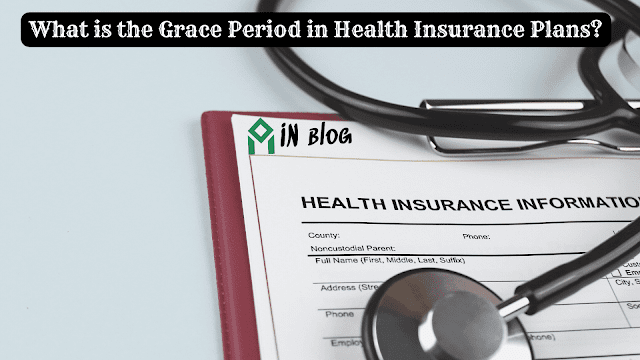Introduction
Vous avez peut-être entendu le terme « délai de grâce » en matière d’assurance maladie, mais qu’est-ce que cela signifie ? En termes simples, le délai de grâce est une période de temps déterminée qui vous est accordée après l'expiration de votre couverture d'assurance maladie pour payer votre prime et continuer à profiter des avantages de votre régime d'assurance maladie.
Cela peut sembler être un grand avantage, et cela peut l’être, mais il y a quelques points à garder à l’esprit. Nous détaillerons le délai de grâce pour vous et vous indiquerons ce que vous devez faire pour vous assurer de ne pas perdre votre couverture.
Quel est le délai de grâce pour les régimes d’assurance maladie ?
Le délai de grâce d'un plan d'assurance maladie est un nombre défini de jours dont vous disposez après la date d'expiration de votre contrat pour payer la prime et continuer à profiter des avantages de votre couverture d'assurance maladie sans interruption.
Par exemple, si votre contrat d'assurance maladie expire le 1er mai et que vous ne payez pas la prime avant le 15 mai, vous ne serez plus couvert par le régime d'assurance maladie. Toutefois, si vous payez la prime entre le 16 et le 31 mai, vous serez couvert par le régime d'assurance maladie à compter du 1er juin.
Quelle est la durée du délai de grâce ?
La plupart des régimes d'assurance maladie offrent un délai de grâce de 20 à 30 jours. Cela signifie que si vous manquez le paiement de votre prime de quelques jours, vous disposez encore de 30 jours pour recevoir votre paiement et continuer à profiter des avantages de votre assurance maladie sans interruption.
Certaines assurances maladie offrent un délai de grâce de 60, voire 90 jours. Donc, si jamais vous êtes dans une impasse et que vous manquez le paiement de votre prime, assurez-vous de vérifier si votre régime d'assurance maladie dispose d'un délai de grâce plus long. Ce temps supplémentaire pourrait s’avérer très utile.
Que se passe-t-il si vous manquez le délai de grâce ?
Si vous manquez le délai de grâce, votre couverture d’assurance maladie sera annulée et vous ne pourrez pas la rétablir.
De plus, vous devrez attendre la prochaine période d’inscription ouverte pour souscrire à un nouveau régime d’assurance maladie. Cela pourrait signifier une période sans assurance maladie, ce qui n’est certainement pas idéal.
Assurez-vous donc de savoir quand votre délai de grâce prend fin et assurez-vous de payer votre prime à temps !
Quelles sont les conséquences du non-respect du délai de grâce ?
Eh bien, si vous manquez le délai de grâce, votre police d'assurance maladie sera annulée et vous devrez vous réinscrire au régime d'assurance maladie lors de la prochaine période d'inscription ouverte.
Et si vous n'êtes pas assuré pendant plus de 63 jours consécutifs, vous devrez payer une pénalité lorsque vous adhérerez finalement à un régime d'assurance maladie. La pénalité est de 2 % du revenu annuel de votre ménage ou de 325 $ par adulte, selon le montant le plus élevé. Et n’oubliez pas que c’est par personne, donc si vous avez une famille, la pénalité pourrait être assez coûteuse.
Quels sont les différents types de régimes d’assurance maladie ?
Il existe différents types de régimes d'assurance maladie, et le délai de grâce est un délai spécifique pendant lequel les assurés peuvent payer la prime et continuer à profiter des avantages de leur couverture d'assurance maladie sans interruption.
Généralement, le délai de grâce est d’environ 30 jours, mais il peut varier selon la compagnie d’assurance. Pendant cette période, vous devriez toujours être couvert même si vous n’avez pas encore payé la prime.
Il est important de noter que tous les régimes d'assurance maladie n'offrent pas de délai de grâce, alors assurez-vous de vérifier auprès de votre fournisseur avant de vous inscrire. Et si vous ne respectez pas la date limite, votre couverture pourrait être temporairement annulée.
Qu’est-ce que l’assurance voyage ?
Disons que vous partez en vacances. Vous avez réservé vos billets, fait vos valises et vous êtes prêt à partir. Mais ensuite, quelque chose se produit : peut-être que vous tombez malade et que vous devez annuler votre voyage.
Ou peut-être que quelque chose de pire se produit et que vous devez aller à l'hôpital. C'est là que l'assurance voyage entre en jeu. Elle peut vous aider à rembourser les frais de votre voyage, y compris votre billet d'avion, votre hôtel et d'autres dépenses.
Beaucoup de gens pensent que l’assurance voyage est réservée aux personnes qui effectuent des voyages coûteux, mais ce n’est pas le cas. Il peut être utilisé pour tout type de voyage, qu'il s'agisse d'un week-end ou de vacances plus longues. Et le meilleur, c’est que cela ne coûte généralement pas très cher.
Conclusion
Le délai de grâce est une durée déterminée dont disposent les assurés pour payer la prime et continuer à profiter des avantages de leur couverture d’assurance maladie sans interruption.
Le délai de grâce est souvent de 30 à 60 jours, mais il peut varier en fonction de la compagnie d'assurance maladie et du type de police d'assurance.
Les assurés doivent être conscients de leur délai de grâce et s’assurer de payer leur prime pendant cette période pour éviter toute interruption de leur couverture.

